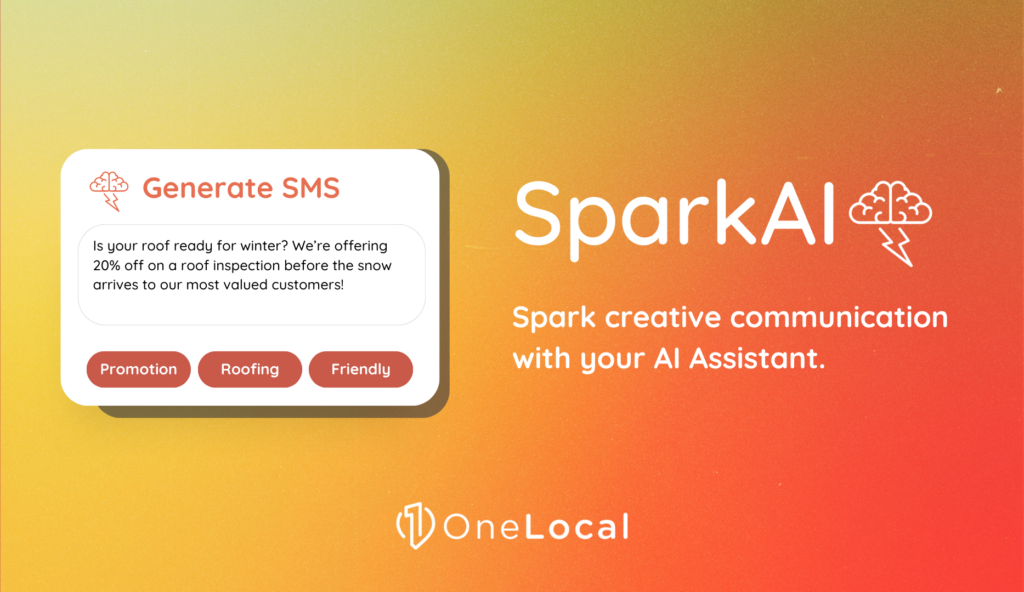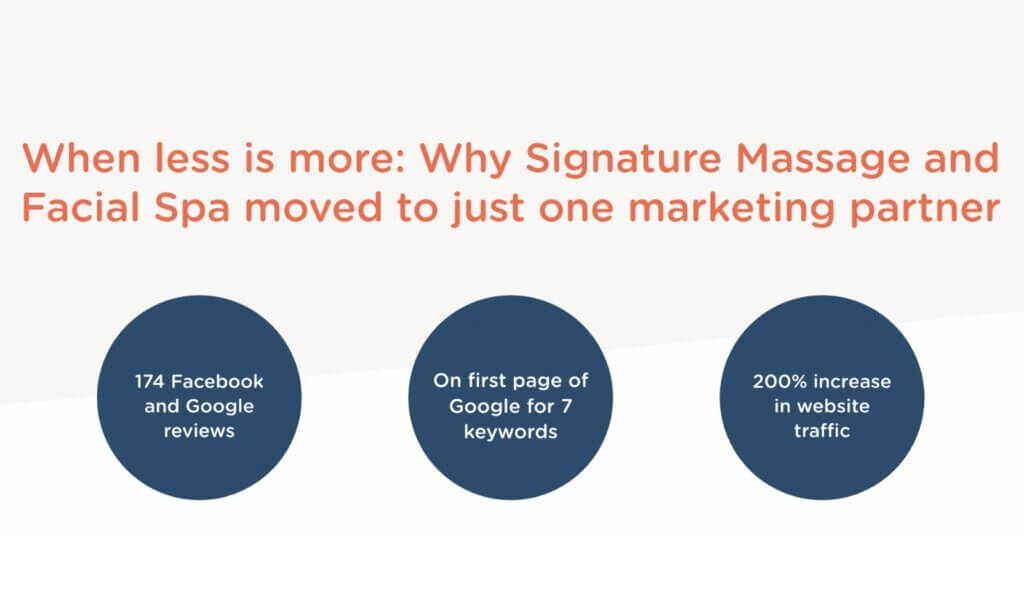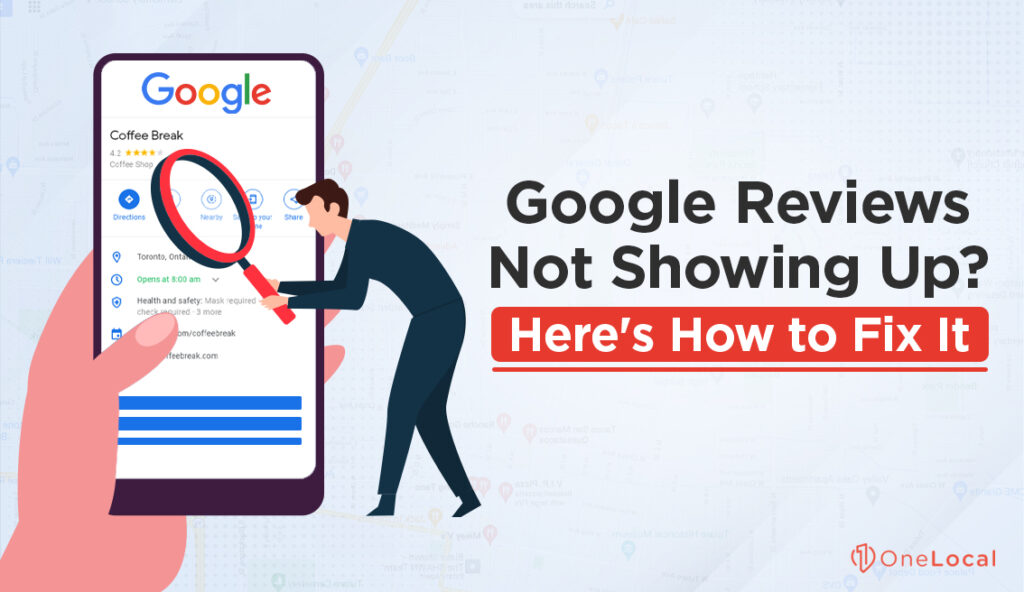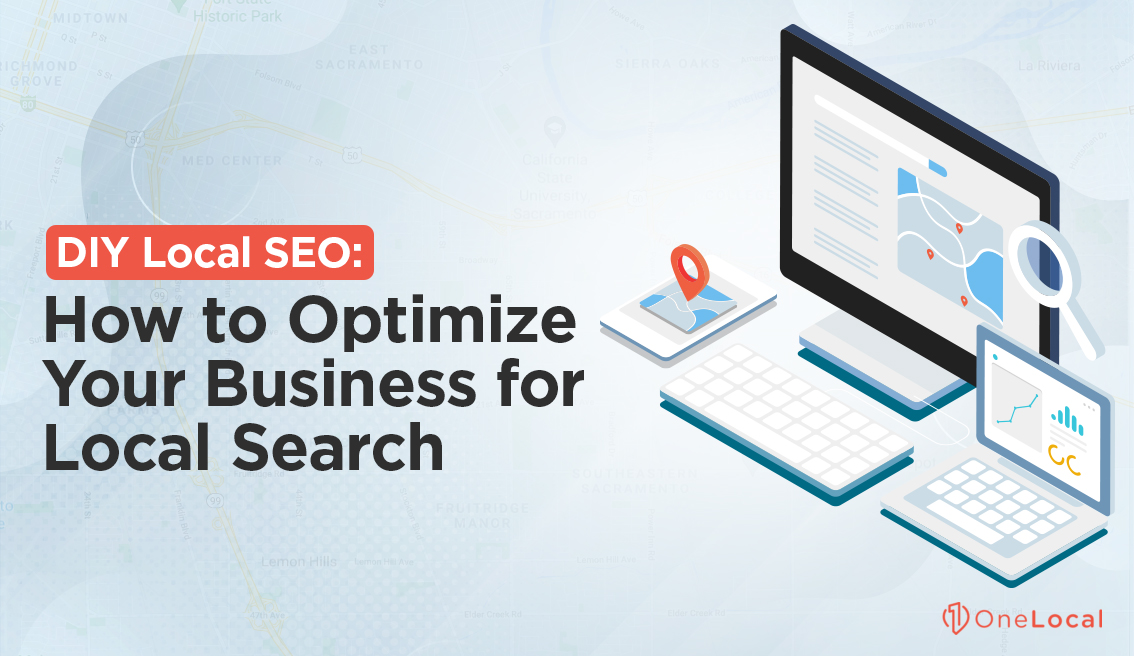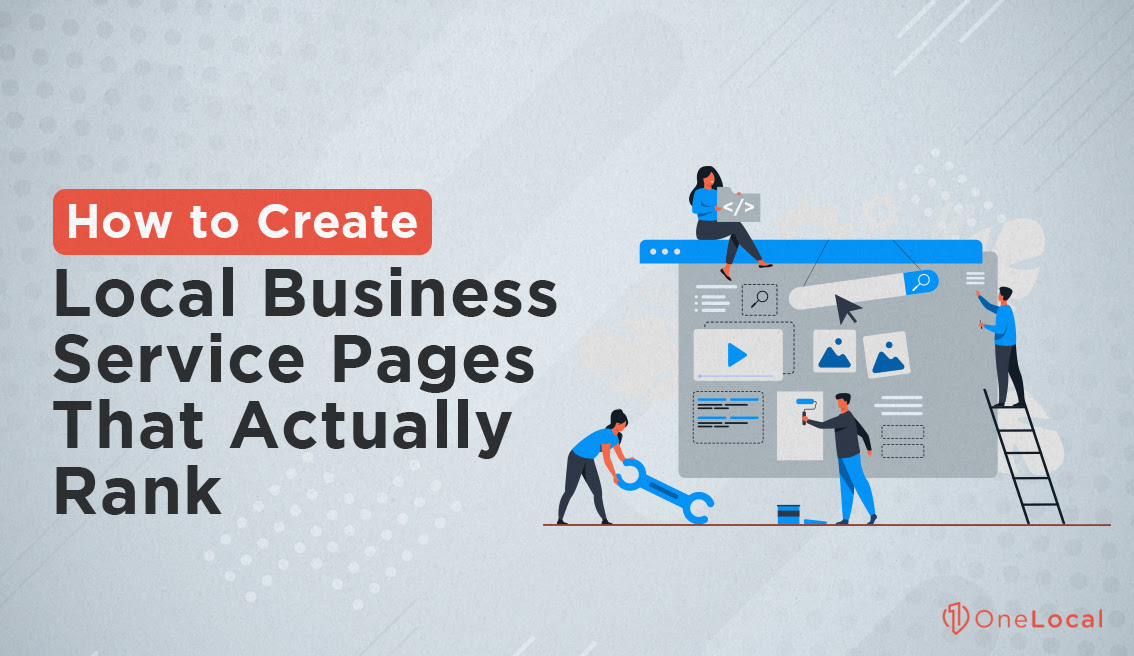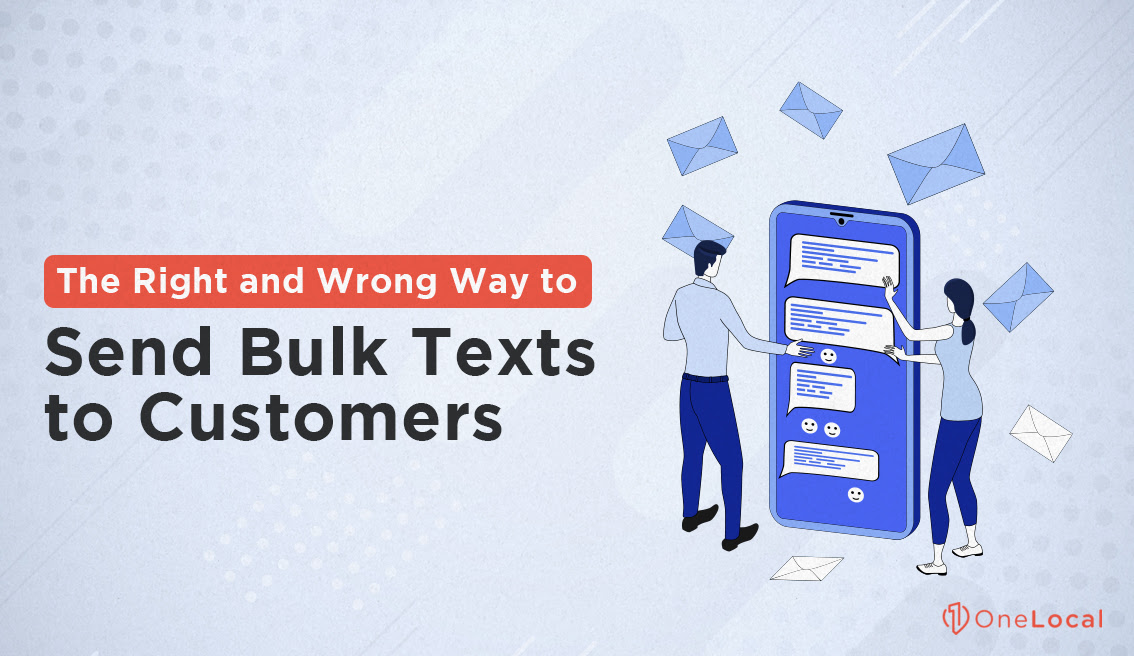Small businesses have very few advantages over larger national or multinational companies. One of those few advantages, though, is the ability to capitalize on local search results by using DIY local SEO. Large corporations are limited to, at best, just the cities where their head offices are located. Since so many corporations are based in a major hub like Austin, Atlanta, Silicon Valley, or that one office in Delaware, they tend to cluster up. That leaves most of the rest of the country open to small businesses taking advantage of local SEO and local search.
It’s well-worth capturing local searches. As of 2019, 46% of all Google searches were local; and that number will only increase over time as more and more people look for local businesses to support rather than national or multinational chains.
Local SEO isn’t exceedingly difficult, but a lot goes into it, and it needs to be done right if you want it to work at all. If you remember a decade or so ago, when the internet was full of sites with keywords like “Pest Control in Kansas City” and the like, you probably remember how bad it was. These days, most general SEO is the same whether you’re Forbes or a small business with a few hundred customers.
Typically, we’d recommend that you hire a company to provide high-quality local SEO services. However, you might not want to jump into contracting it out just yet or might not have the budget to do it. That’s what this post is for; helping you with the DIY local SEO version. Here’s how you can optimize your web presence for local SEO without contracting it out.
Create and Optimize a Google Business Profile
Google is the powerhouse behind the internet. A vast amount of web traffic funnels through Google, and everyone who searches for anything relevant to your business – especially if they’re in your geographic area – has an opportunity to find you.
Google also loves to provide “enhanced” search results, with additional info boxes containing things like a map with local businesses, business profiles with reviews, and more. All of this is open to you to use, for free, through the Google Business Profile, which is your first step towards optimizing for DIY local SEO.
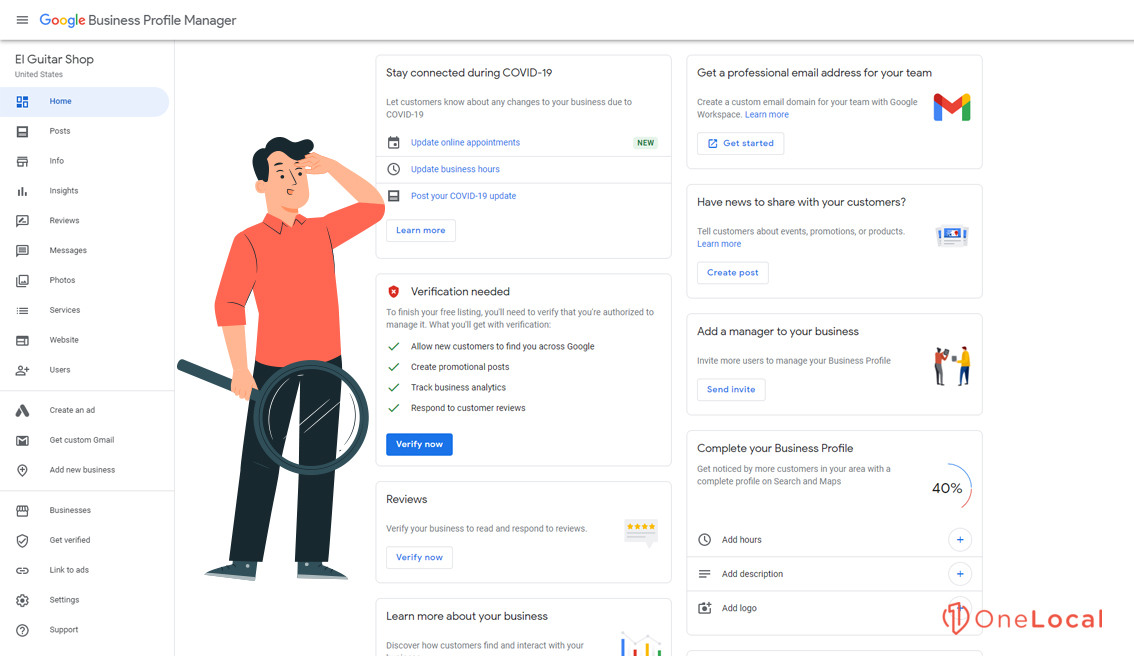
Formerly known as “Google My Business,” the Google Business Profile is essentially the same as something like a Yelp account. It’s a page on a third-party service (Google) that you can claim and fill out to ensure that it has accurate information about your business. This information includes everything from your Name, Address, Phone, Hours, and Service Area to business reviews and website URL.
To claim this profile, visit this page and follow the instructions. You’ll be asked to choose your business from a list, and if it’s not already on the list, to add it. You’ll then need to fill out your information (making sure to keep it identical to the same information on other sites for best effect) and verify your ownership.
Ownership verification will take a little time because typically, Google needs to send you a postcard in the mail with a unique verification code. Only someone with access to the business’s physical address and mail can verify the business, so it’s an effective way to verify ownership. There are other ways to do it as well (and if you’ve already verified your ownership for something like Google Ads, it may carry over), but the postcard is the most common.
For further reading, check out:
- Tutorial: How to Claim Your Business Listing on Google
- 5 Best Practices for Your Google Business Profile
Solicit More Positive Reviews
It’s a well-known phenomenon that most people aren’t going to leave you a business review when left to their own devices. Satisfied customers will forget about it or may not care. The people who leave reviews are the ones motivated to do so, usually to warn others away after they’ve had a bad experience or to use negative public feedback to encourage the business to respond to their complaint after other customer service channels have failed, as a sort of low-level blackmail.
Therefore, if you want a good and positive web presence, you need to solicit positive reviews. You can’t just make them yourself, but you can send emails to your customers asking for them. There are many different ways to encourage reviews from satisfied customers and some clever tricks that you can use to minimize negative reviews.
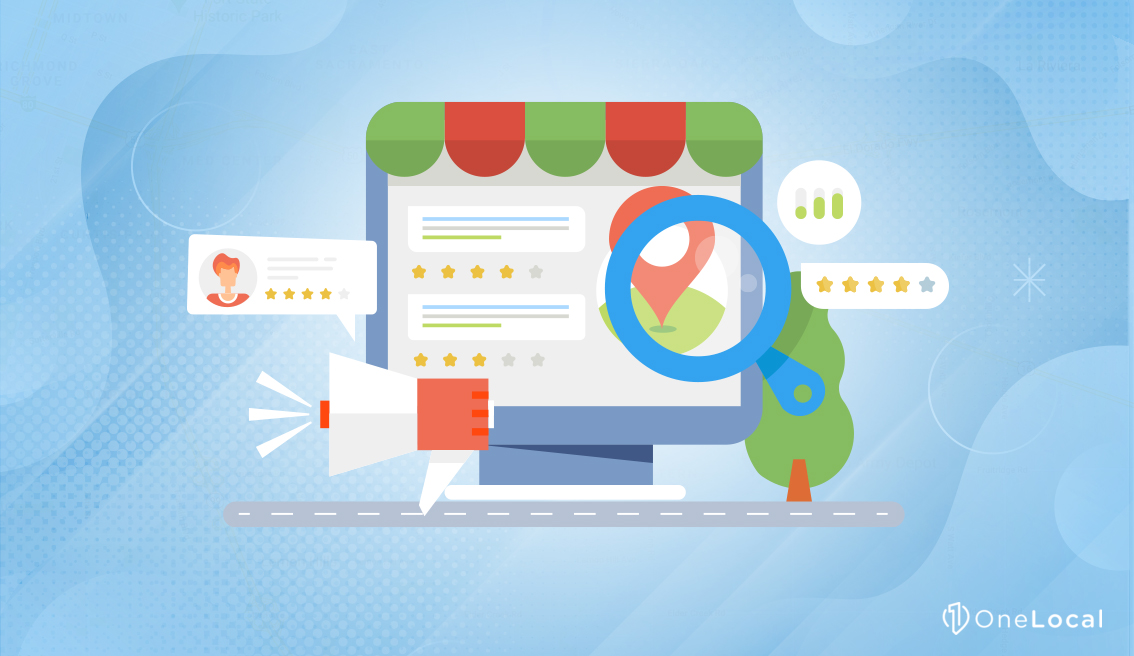
For example, you can set up a system that asks users to rate you on a 1–5-star system. When the user clicks the 5 or 4-star buttons, they are taken to Google to leave a review. If they click the 3 or 2-star buttons, they are instead taken to a page where they can leave you feedback directly, and you can work with them to improve their experience. And, of course, if they click on the 1-star rating, they are taken directly to the customer service portal.
Positive reviews, both on sites like Yelp, TrustPilot, or an industry review hub, are important, as are the reviews directly with Google. That’s why a large part of the services we offer includes review generation.
For further reading, check out:
Create Local-Focused Content
Depending on the scale and location of your business, one of the best ways to improve local search ranking is going to be through local coverage. Users want to know that you’re more than just a national chain trying to dip into a local market; they want to know that you’re a part of the community.
Through your blog, you can cover topics that are locally relevant to your community, as well as relevant to your industry. Some ideas include:
- Monitor local news for stories that impact your community and write about them.
- Watch for local events (particularly those you can sponsor) and write coverage about them.
- Create content focusing on local charities, outreach organizations, or causes you support.
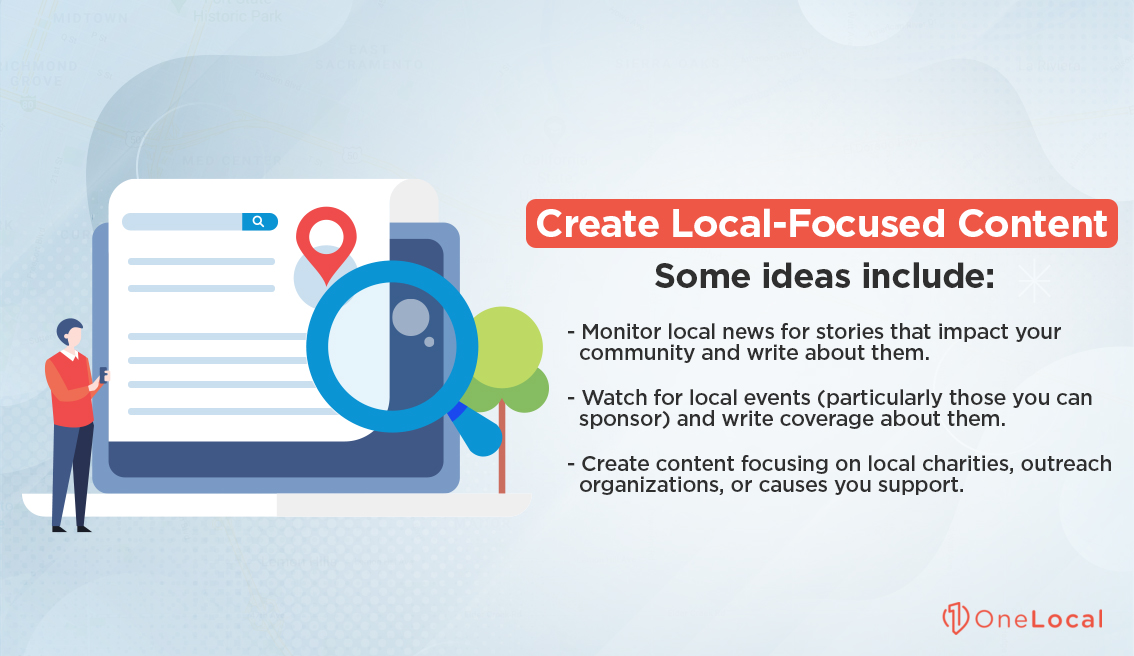
You can also set up sub-pages or micro-sites – or even spinoff versions of your site – focused on different parts of your community. Your business might cover a whole city, but divide it into three service areas because you have three branches; that lets you cover more local events in those three areas through three different hyper-local blogs.
This kind of content marketing does, however, require deep and intimate knowledge of your local community. It’s not something that can easily be faked by an outsider or someone disengaged with the community. Other outsiders might not be able to tell the difference, but locals will know.
Another thing you can do for DIY local SEO is create local About Us pages for each region you work within. You want these pages to be full of unique information about that specific area, branch, and set of products or services.
Here’s an example: Hawaiian Falls, a waterpark chain in Texas, has five locations. You can see all five locations on their homepage and click through to dedicated pages for each, such as the one for Roanoke and the one for Waco. 90% of the content on these pages is the same; however, there is some location-specific information, including the location, parking, directions, local hotels, and other information for travelers looking to visit.
Ideally, the pages would be even more unique between locations, but this is still a rather good example of the kinds of localized-but-general information you can create.
Use Local and Regional Directories and News Sites
Another hack for DIY local SEO is local and regional directories. Every location has its own resources for local residents. You should strive to take part in as many of these as you can. Consider:
- State-level or county-level news sites, such as newspapers.
- City-level newspaper sites.
- Local or regional media sites, like TV and radio station affiliate pages.
- Local directories, like a state or city tourism site.
- Regional business directories.
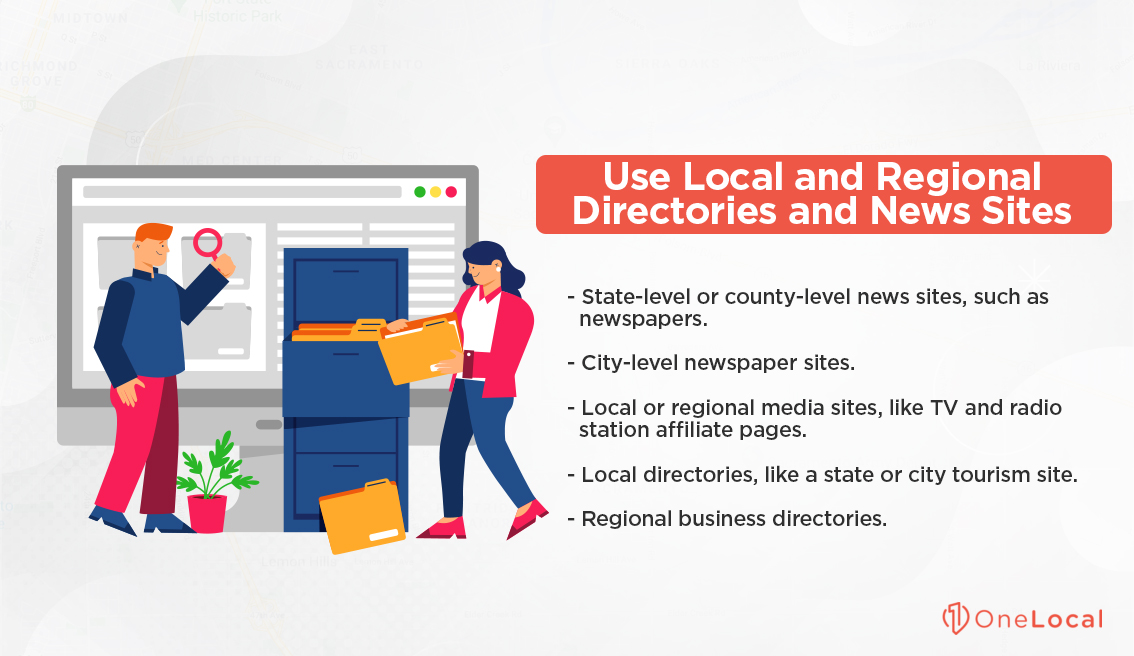
At the same time, you want to find your presence on all of the significant directory sites, like Yelp, TrustPilot, FourSquare, YP, and more, as well as industry or niche-specific directories like Angi, HealthGrades, or TripAdvisor.
Locating any directory relevant to your location and business can be time-consuming, as can claiming and filling out all those profiles. More importantly, keeping on top of them and monitoring for reviews can be a full-time job. That’s just another reason why we recommend outsourcing it; because otherwise, you’re going to be hiring a full-time employee or a small team to do it for you.
Create and Engage on Social Media
These days it feels like social media is on a slow decline. Sites like Facebook are losing users rapidly, and many of the current social platforms young people use are fractured into micro-communities or entirely hidden from marketers. That said, social networks are still a massive part of local SEO, and they will remain valuable until they shut their doors.
We recommend registering for the most significant social networks. Claim your profile, fill it out, promote it on your website and newsletter, and encourage people to engage with the page. When they do, make sure to reply to keep the community alive. Which networks should you focus on?
- Facebook, since it’s the largest social network out there.
- Twitter, since millions of people use it for customer service and direct engagement.
- LinkedIn, which is less useful for direct marketing and more for job marketing.
- Instagram, if you can take compelling photos or create cool images to represent you.
- Reddit, if there’s a local subreddit that you can join and participate in.
- YouTube, if you can make valuable videos for your audience.
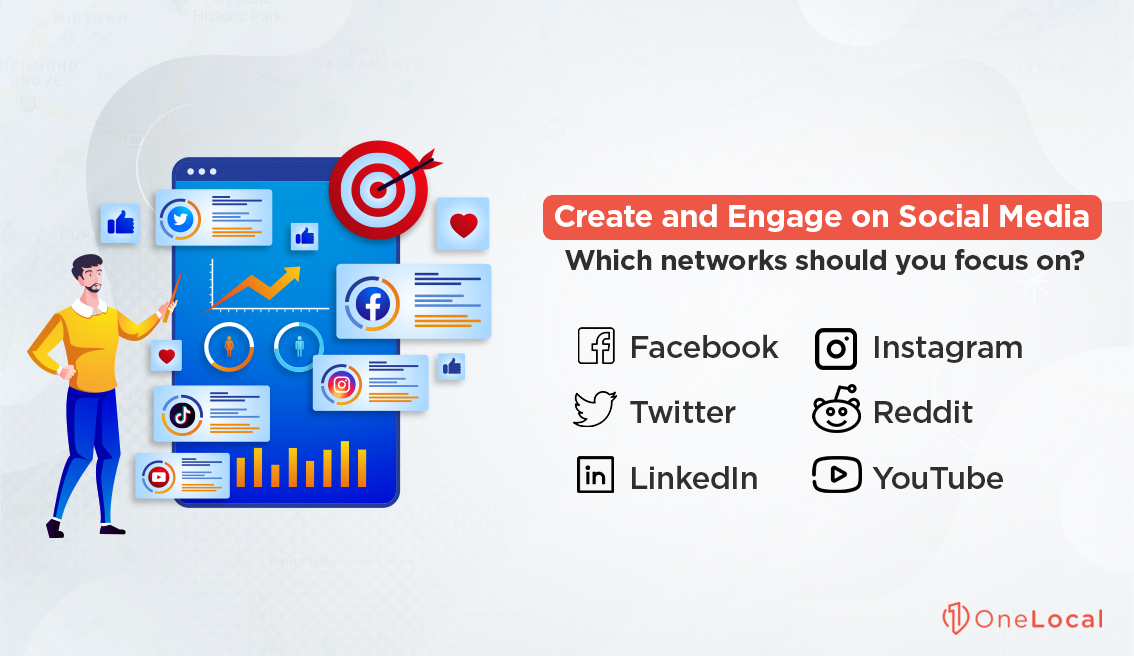
There are other social networks you can try out as well, but these are the biggest ones to prioritize.
Don’t Forget Traditional SEO
Local SEO is still SEO, and that means all of the core SEO signals are still applicable. You want to make sure you’re still creating a robust website with an optimized, fast-loading mobile version. You want to make sure you’re using keywords, including locally-focused ones that your audience is likely to use.

Backlinks are a huge part of SEO, no matter how you shake it. You want to build both large-scale, highly-valuable backlinks from industry and national authority sites, but you can also focus on getting backlinks from local media. A small local newspaper might not have the influence of a site like Forbes, but it can be beneficial to local SEO results.
Oh, and don’t forget all of the “boring” details, like image meta data and alt text, page descriptions and titles, internal linking, and keyword usage.
Another thing you can take advantage of is Schema.org’s rich data markup. Schema markup is used for flagging data with meta data, so that Google can interpret it more accurately. At a general level, this can include things like flagging price information on a page as price information. At a local level, there’s an entire section of Local Business Schema you can use. It’s complex, but it’s well worth the effort to learn and implement.
DIY local SEO Too Daunting? Hire Us
Local SEO is doable on your own, but to be honest, we’ve only scratched the surface of everything you need to do, manage, and keep in mind as you create content and optimize your website. Every sentence of the post above represents hours or days of work. It’s a lot! It’s a daunting task, and it needs to be done right if you want your business to thrive in a local climate.
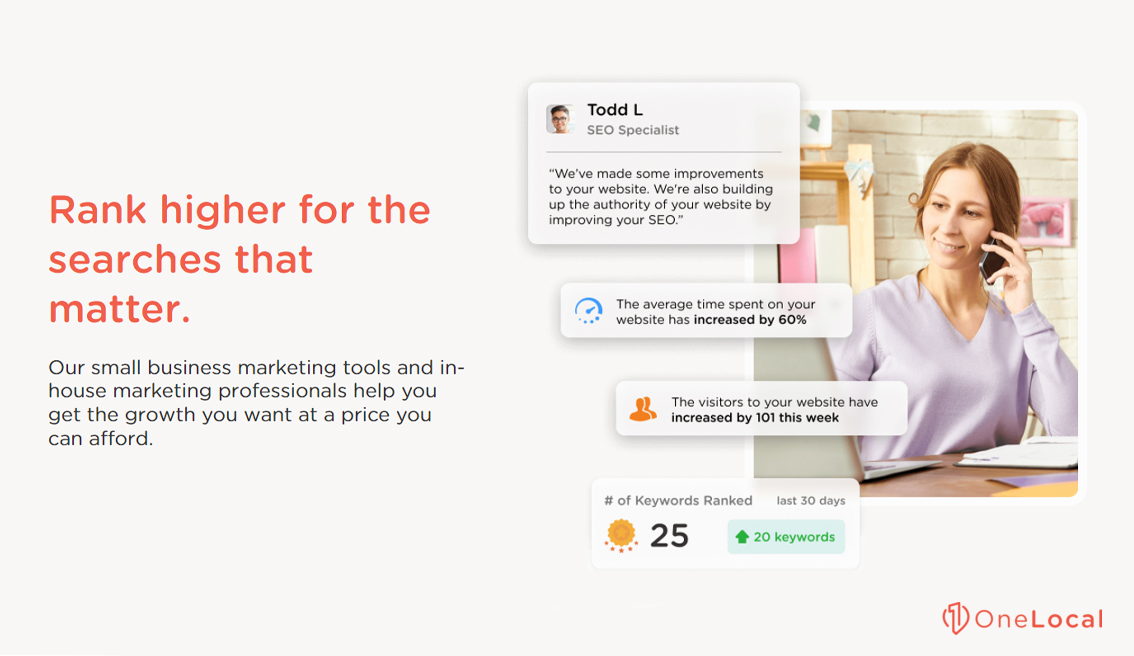
That’s why we offer our services as local SEO experts. If you don’t want to handle everything above on your own, or if you’ve tried and found that it’s just too much work, let us handle it. We’re experts in all things local, from general local SEO to messaging and communications, referrals, visits, and review solicitation. Our expert services are available for you; all you’ll need to do is drop us a line to discuss your needs. Additionally, if you have any questions regarding local SEO or our Local SEO service, feel free to reach out and ask any questions you may have at any time! We would be more than happy to assist your or your business’s needs.

Rachel Solway is a seasoned marketing professional dedicated to empowering small businesses through innovative marketing strategies. With extensive experience at OneLocal, a leading marketing solutions provider, Rachel’s insights are helping thousands of local businesses navigate the digital landscape.

